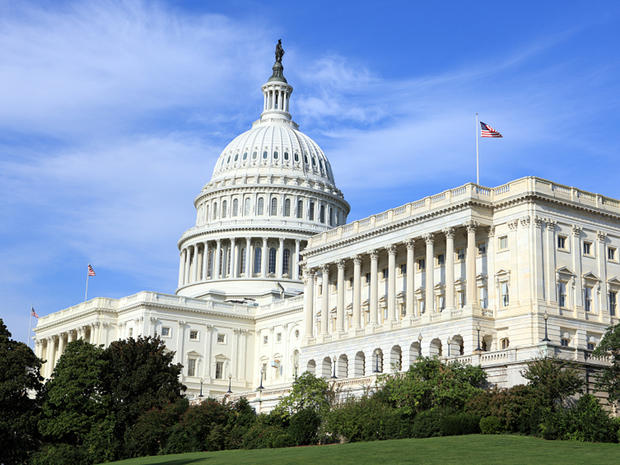Report: Congress on pace to be least productive since World War II
(CBS News) The partisan gridlock in this year's Congress is no joke: The 112th session -- which includes 2011 and 2012 -- is on pace to be the least productive congressional session since World War II, USA Today reports.
So far, Congress has passed into law just 151 bills during this session -- 90 in 2011 and 61 in 2012. The only other year since 1947 in which Congress failed to pass at least 125 bills was 1995, USA Today reports after reviewing congressional records. This Congress is even set to beat the notorious "do nothing" Congress of 1948.
The gridlock may be disappointing, but it is not surprising. It was largely predicted after Republicans took control of the House in the 2010 election with the Tea Party directive to halt the Democratic agenda. With Republicans in control of the House and Democrats still in charge of the Senate -- and compromise out of fashion -- the prospect of getting much done was bleak.
Some conservatives may prefer the gridlock over the sort of productivity seen in the 111th Congress. In the 2009-2010 session, Democrats had control of both chambers, as well as a Democratic president to help move along their agenda.
That Congress passed 383 bills into law, including the Affordable Care Act, Wall Street reform, the $787 billion stimulus package, the first-time home buyer tax credit, "cash for clunkers," a crackdown on credit card companies, student loan reform, the Lilly Ledbetter Fair Pay Act, tobacco reform and food safety reform. The Senate also confirmed two Supreme Court Justices.
Of course, Democrats and Republicans blame each other for the gridlock in this Congress. Doug Heye, a spokesman for House Majority Leader Eric Cantor, reminded USA Today that the GOP-led House has passed over 30 economic measures that have died in the Senate. President Obama and Democrats, meanwhile, blame Republicans.
While they haven't passed many bills so far, this Congress could make up for it after the November elections by handling a series of critical issues, including the expiration of the Bush-era tax cuts as well as the the $1.2 trillion in "sequester" cuts Congress would like to avoid.
